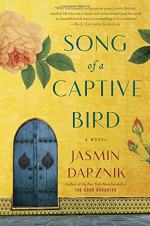|
This section contains 961 words (approx. 3 pages at 400 words per page) |

|
The Garden
Forough's childhood garden symbolizes both her childhood innocence and the positive aspects of old Iranian traditions. Forough says that it is in this garden that she "[grows] familiar" (26) with Persian poetry for the first time, remembering how she and Puran played in the garden and how her mother loved it. When Western powers begin influencing Iran, the Colonel destroys the garden in order to make a "modern, Western-styled one" (27). Forough considers this destruction a "sin" (29), which causes her mother to be "ravaged with grief" (28). In effect, by destroying the garden, the Colonel destroys the old way of life of both Forough and her mother, destroying Forough's innocence and allowing the Western powers to overthrow Iranian traditions.
Making and Serving Tea
Making and serving tea symbolizes a girl's eligibility for marriage. Forough says that a "girl's destiny" was settled "over her mother's teatime pleasantries" (61) in Iranian...
|
This section contains 961 words (approx. 3 pages at 400 words per page) |

|




